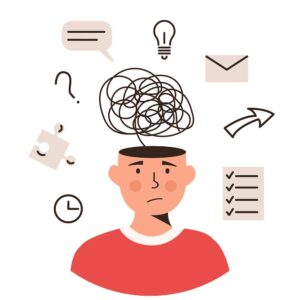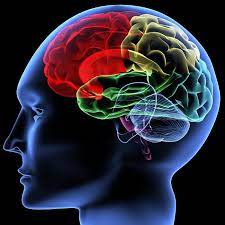If you or someone you know is struggling with ADHD, it’s important to get tested. There are many different tests available, and the right one for you will depend on your symptoms and situation. This blog post will discuss the different types of ADHD tests available, as well as what you can expect from each one. We’ll also provide information on you can be prepared for the ADHD testing!
Contents
What Is ADHD?
 ADHD is described as a neurological disorder that manifests as problems with focus, hyperactivity, and impulsiveness. It is most commonly diagnosed in children, but can also affect adults. According to the studies, an estimated three to five percent of American children have ADHD.
ADHD is described as a neurological disorder that manifests as problems with focus, hyperactivity, and impulsiveness. It is most commonly diagnosed in children, but can also affect adults. According to the studies, an estimated three to five percent of American children have ADHD.
ADHD testing is important for children displaying symptoms of the disorder. A diagnosis of ADHD can help parents and teachers better understand a child’s behavior and provide them with the necessary resources and accommodations. It can also be used to rule out other potential causes of a child’s symptoms.
There are several types of ADHD tests that mental health professionals may use in order to make a diagnosis. ADHD testing is simply defined as a way to assess whether someone meets the criteria for the disorder. It is important to note that there is no one definitive test for ADHD and diagnosis is usually made based on a combination of factors.
It is important to consult with a mental health professional who is experienced in diagnosing and treating ADHD. This will help you to get an accurate diagnosis and develop an appropriate treatment plan.
What Are The Types Of ADHD Testing?
There are some common types of ADHD testing that are used to help diagnose the condition. These include:
Psychoeducational assessment
This is usually carried out by a psychologist or psychiatrist and involves looking at your child’s educational progress and development, as well as their behavior. It works to rule out other possible causes of their symptoms. For instance, in psychoeducational assessment, a clinician will often ask whether there have been any changes at home or school that could be affecting your child’s behavior.
Achievement tests
These are used to assess your child’s academic progress and can help identify any areas where they may be struggling. A professional can administer these tests and interpret the results to determine whether or not your child has ADHD. Sometimes, these achievement tests may be given in combination with intelligence tests.
An intelligence test can help identify your child’s cognitive strengths and weaknesses. This information can be useful in developing a plan to help your child succeed in school. Intelligence tests are administered by a professional and usually take several hours to complete.
Attention and concentration tests
As the name suggests, these tests help to assess your child’s attention span and ability to concentrate. They usually involve completing tasks such as puzzles or drawing while the tester measures how long your child can stay on task. It is believed that children with ADHD have shorter attention spans and are more likely to become easily distracted.
Cognitive ADHD testing
This type of testing is usually conducted by a psychologist or psychiatrist. It assesses how well someone can think, learn, and remember. This can be done with paper-and-pencil tests or through computerized tasks. Cognitive testing is often used to diagnose ADHD in adults.
But it can also be used to diagnose the condition in children. This is because cognitive testing can help to rule out other conditions that may be causing symptoms similar to ADHD. Cognitive testing can be used to assess:
- Attention span
- Ability to focus
- Working memory
- Logical reasoning
- Visual processing
- Auditory processing
- Language skills
- Motor skills
Neuropsychological testing
 This type of testing is usually done by a psychologist or psychiatrist. It assesses how well someone functions cognitively and behaviorally. The test results can help diagnose ADHD, as well as other mental health conditions. There are different types of neuropsychological tests. Some commonly used ones to diagnose ADHD include:
This type of testing is usually done by a psychologist or psychiatrist. It assesses how well someone functions cognitively and behaviorally. The test results can help diagnose ADHD, as well as other mental health conditions. There are different types of neuropsychological tests. Some commonly used ones to diagnose ADHD include:
- Conners’ Rating Scales
- Brown Attention Deficit Disorder Scale
- Test of Variables of Attention
These all assess different aspects of attention and focus, which are often impaired in people with ADHD. The test results can help identify specific areas of difficulty and guide treatment.
Behavioral rating scales
When it comes to ADHD testing, behavioral rating scales are often used. For this type of assessment, a clinician will ask you and/or your child’s teachers to fill out a questionnaire about your child’s behavior. Based on the answers, the clinician can get an idea of whether or not your child is displaying symptoms of ADHD.
This type of ADHD testing can be beneficial because it can give the clinician a more well-rounded picture of your child’s behavior. However, it is important to keep in mind that this type of assessment is not always accurate. In some cases, a child may be misdiagnosed with ADHD when they do not actually have the condition.
So these are some common ADHD testing that is used. If you think your child may have ADHD, it is important to talk to a clinician about your concerns. They can help you determine if further testing is necessary and what type of treatment would be best for your child.
How To Prepare Yourself For ADHD Testing?
It is important to be prepared for your ADHD testing appointment. Here are some tips on how to get ready:
- Talk to your doctor about your symptoms and what you’re hoping to learn from the testing. It is also important to share any concerns you have about the testing process.
- Be sure to bring a list of any medications you’re currently taking, as well as any medical records that might be relevant to your appointment.
- It is also helpful to write down any questions you want to ask the doctor during your appointment. This way, you can be sure to get all the information you need.
- Gather information about your medical history, including any family history of ADHD or other mental health conditions.
- Be prepared to discuss any difficulties you’ve had in school, work, or personal relationships. It can be helpful to bring along any documentation, such as report cards or performance reviews, that illustrate these challenges.
By being prepared for your appointment, you can help ensure that you get the most out of your testing and come away with the information you need to make informed decisions about your care.
Testing for ADHD can be a helpful way to gain a better understanding of your symptoms and how to best manage them. By being prepared for your appointment, you can make the most of this opportunity to learn more about your condition.
What Happens During ADHD Testing?
 This might be your first time meeting with a psychologist or psychiatrist. It’s important to remember that they are not there to judge you. They want to work with you to find solutions that will improve your life.
This might be your first time meeting with a psychologist or psychiatrist. It’s important to remember that they are not there to judge you. They want to work with you to find solutions that will improve your life.
During testing, the professional will ask questions about your symptoms, how long you’ve been experiencing them, and how they impact your life. They will also ask about your family history and any other factors that might be contributing to your symptoms.
Testing usually takes place over the course of several sessions. In between sessions, you will be asked to complete tasks or answer questions that will help the professional assess your symptoms. For instance, you might be asked to keep a journal of your symptoms or complete attention-based tasks.
Testing for ADHD can be a lengthy process, but it is important to remember that you are not alone. Millions of people live with ADHD, and with the right treatment, you can live a happy and successful life. If you think you might have ADHD, or if your child is exhibiting symptoms, talk to your doctor about getting tested. It could be the first step to a better life.
What To Do After ADHD Testing?
After you have your child tested for ADHD, it is important to do a few things.
- First, you need to make sure that the diagnosis is accurate. This means getting a second opinion if you have any doubts about the first diagnosis.
- Second, you need to create a plan for dealing with ADHD. This plan should include both short-term and long-term goals.
- Third, you need to make sure that your child is getting the proper treatment for ADHD. This may include medication, therapy, or a combination of both.
- Fourth, you need to educate yourself and your child about ADHD. This will help you better understand the condition and how to deal with it.
- Fifth, you need to find a support system. This can be friends, family, or a support group for parents of children with ADHD.
These are just a few things that you need to do after your child is diagnosed with ADHD. If you take the time to do these things, you will be able to better deal with ADHD and help your child succeed. In addition, you should always consult with your child’s doctor to get the most accurate and up-to-date information about ADHD.
With the right information and support, you can help your child overcome ADHD. The treatment options can help you manage your child’s symptoms and improve their quality of life.
You should also keep in mind that everyone is different, so what works for one child may not work for another. Don’t get discouraged if the first treatment you try doesn’t work. Just be patient and keep trying until you find something that does work for your child.
Conclusion
To conclude, ADHD testing is not a foolproof process, but it can give you some valuable insight into whether or not your child has ADHD. It’s important to consult with a professional before making any decisions about medication or treatment, but the testing process can be a helpful first step.
If you think your child may have ADHD, don’t hesitate to reach out to a qualified professional for help. With the right diagnosis and treatment, children with ADHD can lead happy and successful lives.
For more tips and guidance, you can reach out to Therapy Mantra. The team of professional counselors is more than happy to help you in your journey to recovery. Contact us today to learn more about our services. You can also book an online therapy session or download our free Android or iOS app.


